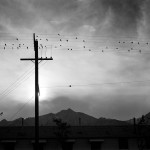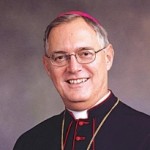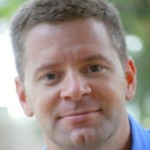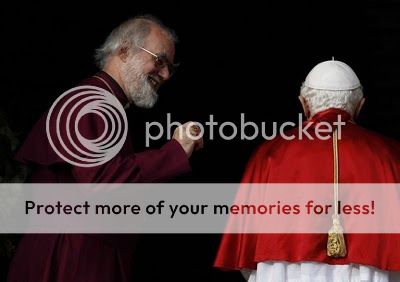
The pope has more vigor than I. His very full day has included a multi-cultural, multi-religious meeting with 4,000 schoolchildren, whom he exhorted to sainthood by making Christ the center of their lives, then a meeting with the Archbishop of Canterbury, at Lambeth Palace, where he said, among other things:
The context in which dialogue takes place between the Anglican Communion and the Catholic Church has evolved in dramatic ways since the private meeting between Pope John XXIII and Archbishop Geoffrey Fisher in 1960. On the one hand, the surrounding culture is growing ever more distant from its Christian roots, despite a deep and widespread hunger for spiritual nourishment. On the other hand, the increasingly multicultural dimension of society, particularly marked in this country, brings with it the opportunity to encounter other religions. For us Christians this opens up the possibility of exploring, together with members of other religious traditions, ways of bearing witness to the transcendent dimension of the human person and the universal call to holiness, leading to the practice of virtue in our personal and social lives. Ecumenical cooperation in this task remains essential, and will surely bear fruit in promoting peace and harmony in a world that so often seems at risk of fragmentation.
“At the same time, we Christians must never hesitate to proclaim our faith in the uniqueness of the salvation won for us by Christ, and to explore together a deeper understanding of the means he has placed at our disposal for attaining that salvation…
And now he heads to Westminster Hall–the place where St. Thomas More (and I believe St. Edmund Campion) was condemned to die–for what many believe will be the central statement of his visit, and one of huge import.
I wonder what Newman would think of the assembly, which pundits are telling us, is comprised of “the most important members of British society.” Hmmm. I always wonder who decides who is important. Currently, on the live feed, we can see Gordon Brown, Tony Blair, Baroness Thatcher, all seated in a row.
After this meeting, Benedict will he’ll participate in Vespers at Westminster Abbey.
On the livefeed, now, people on the sidewalks are running alongside the popemobile. How funny and cute!
Okay, Benedict is coming into Westminster Hall, with a big old-fashioned Trumpet Fanfare. Cool.
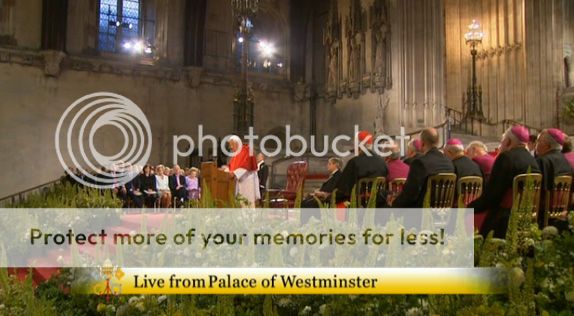
Some reading while we wait: Modern Historians on Pope Benedict XVI.

Archbishop Hilarion Algeyev of Volokolamsk
Also, Russian Orthodox Archbishop Hilarion, a friend of Benedict’s, (and who is in my blogroll) did not mince words with his own speech at Lambeth, the other day. I saw a clever headline about it: Hilarion not Nice at Nicean Dinner!
Check back for more! I’ll be linking (with timestamps as yesterday) as the evening progresses.
Meanwhile watch the live feed, which is without comment, or check out EWTN’s coverage which is moderated. I’ve been switching back and forth.
UPDATE: The full text of Benedict’s remarks at Westminster Hall. An excerpt:
I cannot but voice my concern at the increasing marginalization of religion, particularly of Christianity, that is taking place in some quarters, even in nations which place a great emphasis on tolerance. There are those who would advocate that the voice of religion be silenced, or at least relegated to the purely private sphere. There are those who argue that the public celebration of festivals such as Christmas should be discouraged, in the questionable belief that it might somehow offend those of other religions or none. And there are those who argue – paradoxically with the intention of eliminating discrimination – that Christians in public roles should be required at times to act against their conscience. These are worrying signs of a failure to appreciate not only the rights of believers to freedom of conscience and freedom of religion, but also the legitimate role of religion in the public square. I would invite all of you, therefore, within your respective spheres of influence, to seek ways of promoting and encouraging dialogue between faith and reason at every level of national life.


